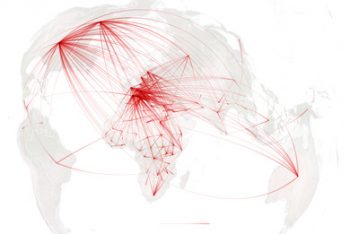PROVIDUS has published an analytical report examining the presence of rule of law in social orientation courses for newcomers in Latvia. The report is a part of an international research project RACCOMBAT, which explores the topic across a number of EU states.
The number of newcomers in Latvia has been steadily increasing over the last few years. More people move here for work, and their families often move together with them. Citizens of Latvia returning from abroad bring along their partners who are nationals of other countries. Also, several hundred asylum seekers from various countries have already been relocated to Latvia in the past couple of years.
Yet Latvian locals are sceptical towards these changes. While the majority of Latvian citizens support return migration and immigration from other EU countries, strong opposition to other forms immigration is prevalent. Negative stereotypes about people with a different skin colour or cultural background are common, and newcomers find it hard to start their lives here – they experience discrimination when trying to secure housing, looking for employment or even when engaging with government and municipal officials[ 1 ].
To ensure that these issues are noticed by policy makers, PROVIDUS is taking part in an international research project RACCOMBAT. It aims to introduce a rule of law education element in language and social orientation courses available to newcomers, mainstream integration in other relevant policy portfolios, as well as introduce the general public with best practices in social orientation of newcomers.
This analytical report examines the extent to which rule of law is currently present in social orientation. It lists the support activities currently available for social orientation of newcomers, the legal provisions that cover anti-discrimination measures, as well as legal resources that are available for victims of discrimination. The report then explores the extent to which these social orientation activities contain information about rule of law and anti-discrimination, and suggests ways in which the existing social orientation framework can be improved.
You can read the full report herepdf.
This report builds on a previous publication mapping integration activities with elements of social orientation. Both reports are a part of a larger research initiative examining topics of integration and anti-discrimination in several EU countries.
This project is funded by the European Union’s Rights, Equality and Citizenship Programme (2014-2020).


